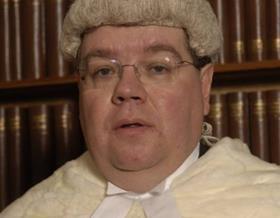The Court of Appeal has made clear it will not grant costs favours to claimants bringing proceedings against multiple defendants.
Lord Justice Coulson said there was a danger of giving ‘carte blanche’ to claimants if they were offered qualified one-way costs shifting protection for every defendant named in a claim. Instead, in Cartwright v Venduct Engineering Ltd he ruled in principle that a claimant who has an order for damages and interest payable by one defendant was liable to pay out of that amount any adverse costs orders for a different defendant.

But this was a limited victory for the successful defendant: the damages secured from different defendants were made through a Tomlin order settled out of court, meaning these funds were not made by order, but as part of a contractual agreement.
The effect was therefore a victory in principle for the defendant, but recovery was denied due to settlement being by way of Tomlin order.
Coulson LJ cited ‘insurmountable practical difficulties’ in applying relevant Civil Procedure Rules to damages from Tomlin orders, including that sums may be confidential, impossible to quantify or even not involve a financial order at all. Coulson LJ recognised the potentially odd and counter intuitive results which flowed from his conclusion but ruled that amendment to the CPR was an issue for the MOJ and the Civil Procedure Rules Committee.
On the matter of principle, Coulson LJ said claimants should not be able to run up large bills of costs safe in the knowledge that, if the claim fails against all but one defendant, they will incur no costs liability of any kind to the successful defendants.
‘That seems to me to be wrong in principle, because it would encourage the bringing of hopeless claims,’ said Coulson LJ. ‘It is important that claimants are discouraged from bringing proceedings which are unlikely to succeed. Claimants with QOWCS protection should not think that this general principle does not apply to them, or that they can issue proceedings against any number of defendants with impunity.’
In deciding how the costs of the appeal were to be awarded, the court followed Howe v MIB (No. 2) and allowed the costs order in the defendant's favour following discontinuance of the main action, to be set off against the costs it was liable to pay the claimant as a result of the appeal.
Jeremy Rea, solicitor for BC Legal acting for the appellant insurers, said: 'This case takes a major step in the right direction towards re-establishing a fair balance under QOCS between the competing interests of claimants and defendants. Obvious inconsistencies arise from the judgment which need to be looked at by the Civil Procedure Rules Committee.'



























5 Readers' comments